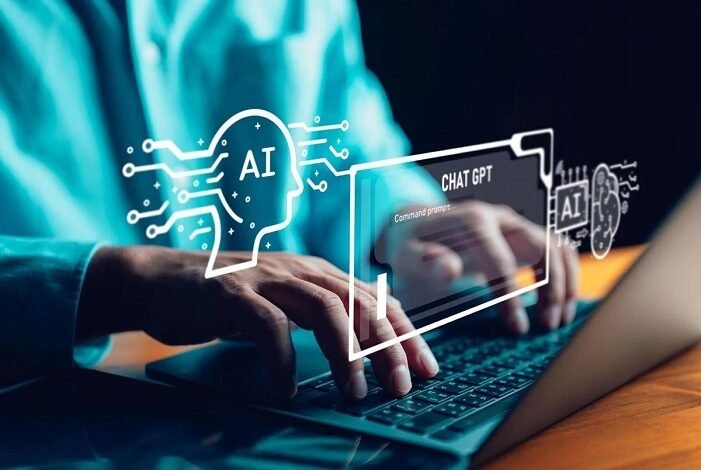Development openaievans financialtimes: Story behind it

Artificial Intelligence (AI) has rapidly evolved from a concept of science fiction to a transformative force driving innovation across industries worldwide. OpenAI, a leader in AI research and development, has played a significant role in shaping this landscape. In this blog post, we explore OpenAI’s impact on development through the lens of insights gathered from the Financial Times. We will delve into how OpenAI’s advancements in AI technology are reshaping industries, the ethical considerations they evoke, and their implications for future societal and economic landscapes.
Introduction: OpenAI’s Vision and Growth
Since its inception in 2015, OpenAI has been committed to advancing AI technology in a way that benefits humanity. Founded with a focus on developing safe and beneficial AGI (Artificial General Intelligence), OpenAI has progressed to become a pioneer in the field, continually pushing the boundaries of what AI can achieve.
OpenAI’s Technological Innovations
1. GPT and Language Processing
OpenAI’s Generative Pre-trained Transformer (GPT) models, particularly GPT-3, have garnered significant attention for their ability to generate human-like text and understand natural language. These models are adept at tasks such as language translation, content creation, and answering queries, showcasing their versatility and potential applications across industries.
2. DALL-E and Creative AI
DALL-E exemplifies OpenAI’s exploration into creative AI. This model generates images from textual descriptions, demonstrating AI’s capacity to assist in creative fields such as art and design. DALL-E showcases AI’s ability to innovate beyond traditional problem-solving applications, opening new avenues for creativity and expression.
Impact of OpenAI’s Technologies on Development
OpenAI’s innovations have brought about transformative changes across various sectors, enhancing efficiency, accessibility, and innovation capabilities.
1. Enhanced Efficiency and Automation
Integrating OpenAI’s technologies into workflows enhances operational efficiency by automating repetitive tasks, analyzing large datasets, and providing data-driven insights. AI-powered systems streamline processes, reduce costs, and enable organizations to allocate resources more effectively, driving productivity and innovation.
2. Democratization of AI Access
OpenAI has democratized access to advanced AI tools through platforms like OpenAI API, making powerful AI models accessible to developers, startups, and enterprises globally. This democratization fosters innovation and enables diverse stakeholders to leverage AI for diverse applications, accelerating technological advancements and economic growth.
3. Applications in Healthcare and Education
In healthcare, OpenAI’s technologies are revolutionizing diagnostics, personalized medicine, and patient care. AI-powered systems analyze medical data, assist in disease diagnosis, and optimize treatment plans, improving healthcare outcomes and operational efficiency. Similarly, AI applications in education enhance learning experiences through personalized learning platforms, adaptive teaching methods, and administrative automation. OpenAI’s contributions to educational technology empower educators and students alike, promoting equitable access to quality education and fostering lifelong learning opportunities.
Ethical Considerations and Challenges
Despite the transformative potential of AI, its deployment raises ethical concerns that require careful consideration and proactive management.
1. Ethical AI Deployment
Ensuring ethical AI deployment involves addressing issues such as algorithmic bias, data privacy, and transparency in decision-making processes. OpenAI emphasizes ethical guidelines and responsible AI development practices to mitigate risks and uphold societal trust in AI technologies.
2. Impact on Employment and Workforce
The integration of AI technologies may impact employment dynamics, prompting discussions on job displacement, skills retraining, and workforce adaptation. While AI automation enhances productivity and creates new job opportunities, proactive measures are necessary to support affected workers and facilitate skill development for emerging roles in the AI-driven economy.
Insights from Financial Times on OpenAI’s Impact
The Financial Times provides valuable insights into how OpenAI’s innovations are transforming industries such as finance, healthcare, and beyond.
1. Finance and AI
In finance, AI-powered algorithms optimize investment strategies, risk management, and customer service, enabling financial institutions to make informed decisions and enhance operational efficiency. OpenAI’s technologies drive innovation in financial services, offering personalized solutions and improving customer experiences.
2. Healthcare and Education
AI innovations in healthcare facilitate early disease detection, personalized treatment planning, and healthcare management improvements through data-driven insights. In education, AI supports personalized learning experiences, enhances educational outcomes, and empowers educators with tools for effective teaching and student engagement.
Future Directions and Opportunities
Looking ahead, the future of AI-driven development presents opportunities for continued innovation, collaboration, and societal impact.
1. Advancements in AI Research
OpenAI remains at the forefront of AI research, exploring advancements in machine learning, natural language processing, and ethical AI development. Future innovations may unlock new capabilities to address global challenges in healthcare, climate change, and sustainable development, contributing to societal progress and well-being.
2. Collaborative Approach to AI Ethics
Collaboration among AI researchers, policymakers, and industry stakeholders is crucial for developing ethical frameworks and governance models for AI deployment. OpenAI advocates for inclusive dialogue and cooperative efforts to ensure responsible AI development, promoting transparency, accountability, and ethical AI practices.
Conclusion
In conclusion, OpenAI’s impact on development, as illuminated by the Financial Times, underscores AI’s transformative potential in driving economic growth, innovation, and societal advancement. By democratizing access to AI technologies, promoting ethical AI deployment, and fostering collaborative partnerships, OpenAI catalyzes a future where AI contributes positively to human progress.





